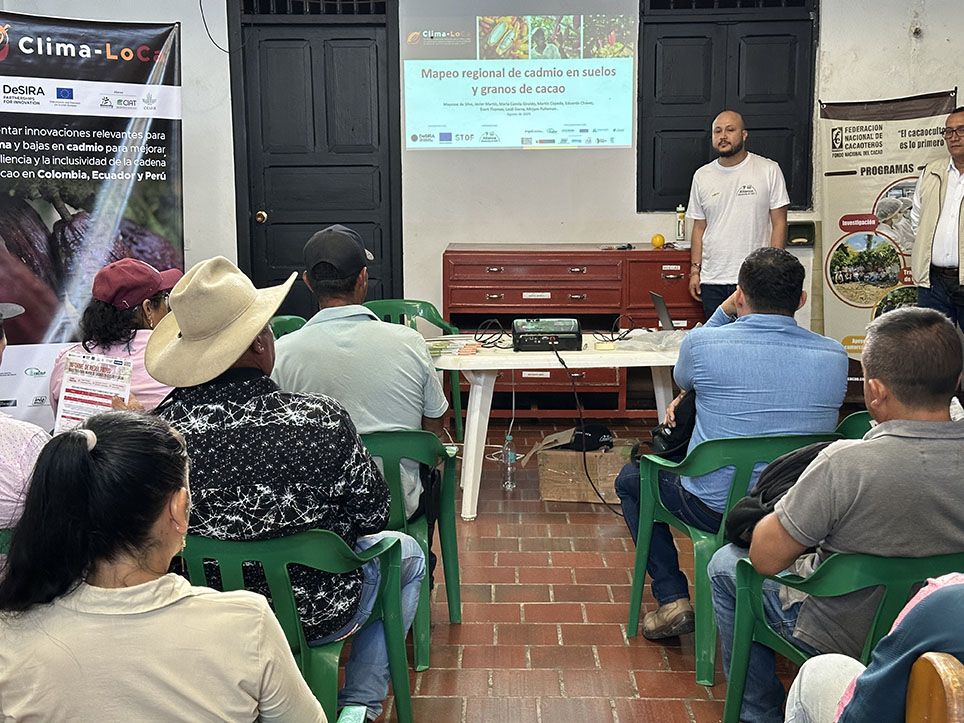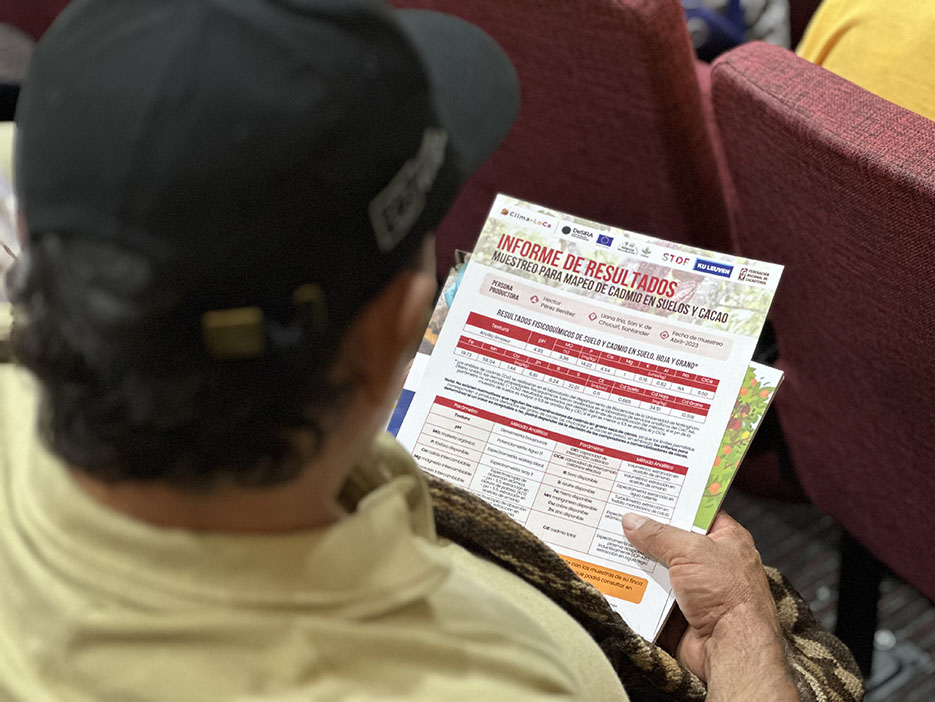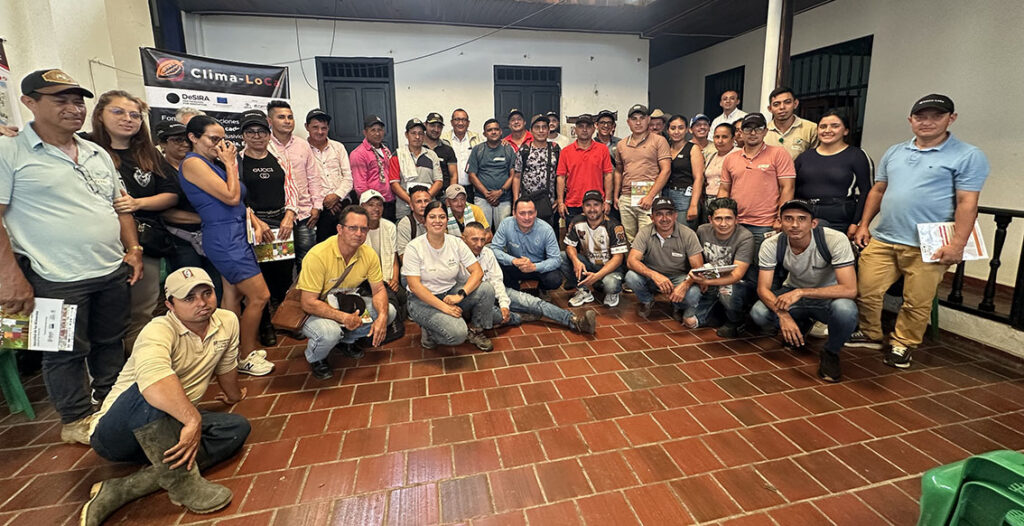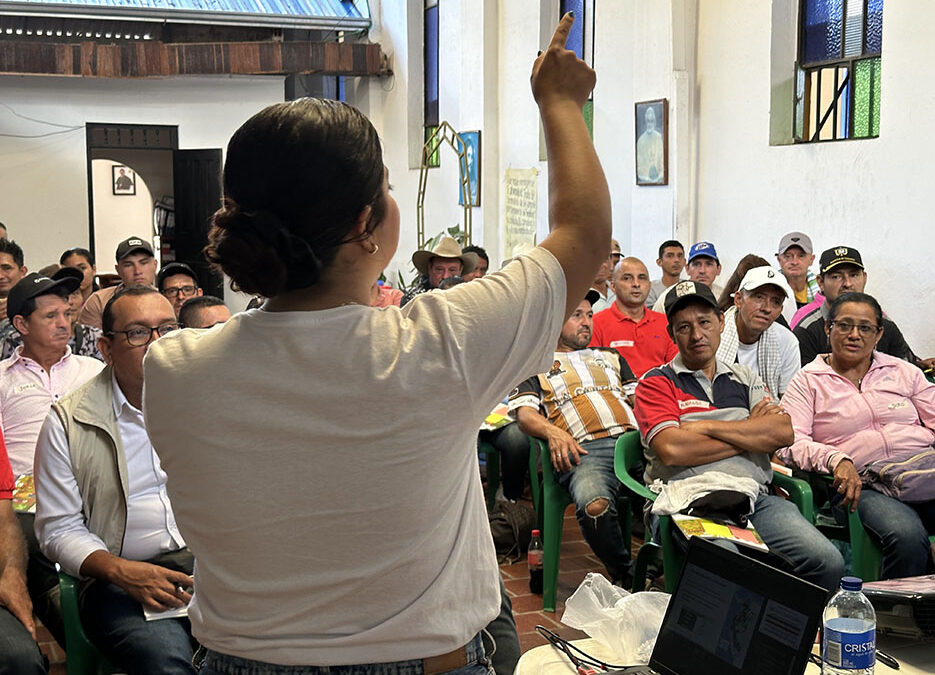The workshops to present the results of the Clima-LoCa project were successfully held in the department of Santander, Colombia, consolidating a space for the exchange of key information for cocoa producers in the region. The first workshop took place on August 20 in the municipality of Landázuri, and the second was held the following day, August 21, in San Vicente de Chucurí, bringing together a total of 94 participants, including producers, specialists, and relevant actors in the sector.

The main objective of these workshops was to present local producers with the preliminary results obtained in Clima-LoCa, promoting active dialogue on issues that directly impact the quality and sustainability of cocoa in Santander. Beyond the presentation of reports, the event included specialized presentations that addressed the problems of cadmium (Cd) and its regulation, an element that affects the safety of cocoa and represents a challenge for its international markets.

During the event in Landázuri, Martín Cepeda presented a contextualization of the project, explaining in detail the impacts of cadmium and the current regulations governing its presence in cocoa beans. Maria Camila Giraldo then presented the regional mapping of cadmium in soils and cocoa beans, showing concrete progress in identifying areas with higher concentrations of this metal. William Melo shared the preliminary results of trials conducted at the Yariguíes farm on the use of amendments to reduce cadmium absorption in grains. Olivier Souningo from CIRAD gave a presentation on the use of commercial cocoa clones in Santander, emphasizing the characteristics of the clones used in the trials conducted in this department. Genetic materials that tolerate monilia were mentioned, as well as the fact that there has been no progress yet on clones with low cadmium accumulation. These presentations provided attendees with a comprehensive overview to understand where cadmium comes from, how it affects them, and what progress the Clima-LoCa project has made in this regard.
In San Vicente de Chucurí, Fedecacao complemented the workshop with a presentation on its own projects related to cadmium and the results obtained, providing an institutional and practical perspective. This collaboration strengthened the sense of community and joint commitment to address and overcome the environmental challenges affecting cocoa cultivation in the region.

En conjunto, estos talleres fortalecieron el vínculo entre la investigación y la producción, permitiendo que los productores de Santander conozcan cómo se produce la dinámica de cadmio en sus cultivos, ya que aún no se cuenta con resultados exactos sobre posibles soluciones. Esta actividad es parte de un esfuerzo continuo del proyecto Clima-LoCa para generar impacto positivo y sostenible en las regiones cacaoteras donde opera.

